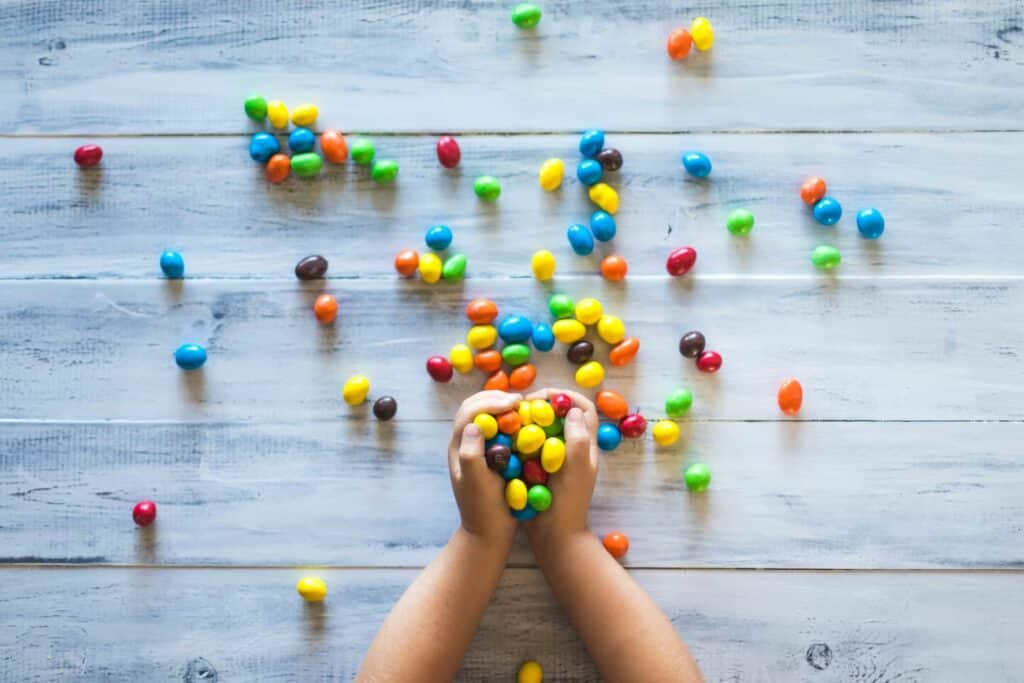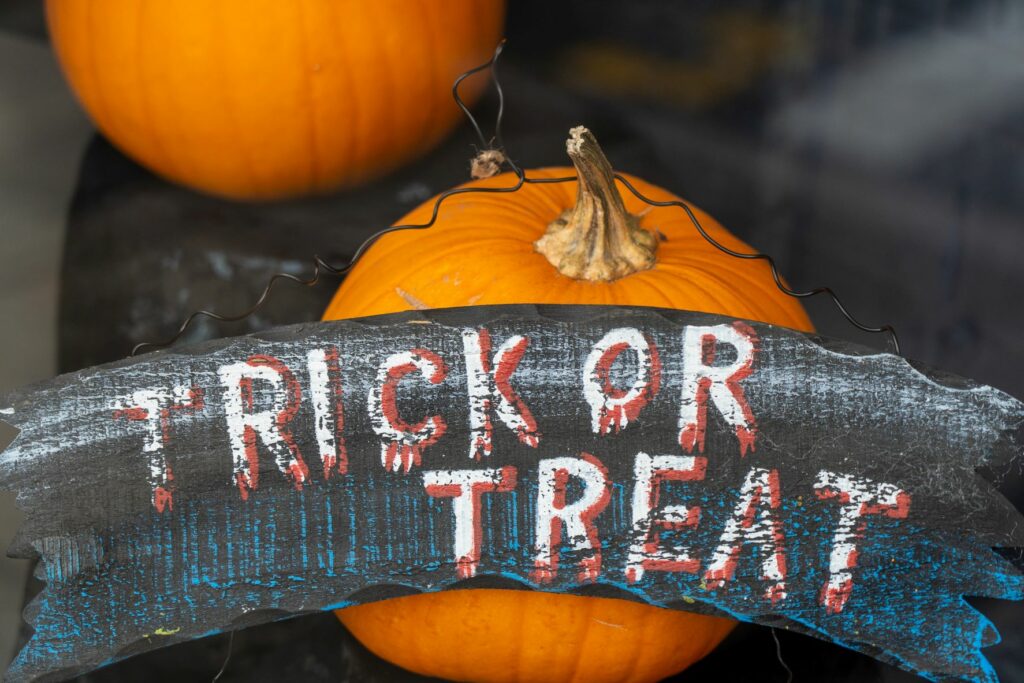5 Mind-Blowing Ways to Help Your Neurodivergent Child Through BC’s
Activities that involve pushing, pulling, or carrying provide proprioceptive input, which has a calming effect on the nervous system...


I remember Halloween vividly as a child. It was like Christmas on steroids. A magical day where people give away candy. I just couldn’t understand it, why would they give it away? It was so delicious and sweet.
For many children, Halloween is a favourite holiday. It also presents an opportunity for kids to learn about their body’s response to “too much of a good thing.” Don’t ruin the magic and joy of Halloween by over-restricting candy intake and making kids resort to sneaking these foods, begging, bribing, etc. Children who have regular access to sweets like candy (and other “forbidden foods”) are more likely to eat them moderately. Those that are over restricted are more likely to overeat and binge on these foods even when they aren’t hungry.

Our smallest Little’s likely can’t remember Halloween’s of the past, therefore, dressing up, painting faces, and trick-or-treating at 2-3 houses is usually enough for their short attention spans. It also limits the amount of candy they will collect (and you will have to deal with).
Halloween Day:
Make sure they are fed. This seems like an obvious one but with all the excitement of the day and preparation to get ready, this often goes out the window. Plan a meal you know your kids will like, it’s not the night to try that new recipe. Even better, have some leftovers ready-made to decrease the stress of the day.
Plan your route and enjoy the trick or treating! Remember the longer you’re out the more treats you’ll have Are there other Halloween activities in your neighbourhood along the routes? Haunted Houses? Firework displays?
After you’re done trick-or-treating let them lay out their haul, go through it, sort it and enjoy as much as they want. Yep, I said it. Let them go nuts. They will get through it faster this way too.
Next Day:
Follow the same, let them eat as much as they want. Stomach ache? Yep, probably, but this will also help them learn about their bodies response to “too much of a good thing”

Following Days:
Stash is now noticeably smaller, the structure is key here. Designate it to meals and snacks only. A couple of small pieces at meals for dessert (2-4 pieces usually works) and as an ‘unlimited’ add-on to a snack in the afternoon. Offer milk and other foods with meals and snacks. Yes, some kids might only eat candy in the afternoon. But it is only once a day and they will burn through their stash faster. Avoid other ‘treat’ foods while Halloween candy lingers (e.g. don’t offer other desserts, ice cream, sugary cereals, chocolate-coated granola bars, etc.)
This is a relatively new practice. Kids have the option of keeping their candy or leaving it to the Switch Witch in exchange for money or a prized toy. The important part of this is the option is left to the child. If they choose to keep their candy then just follow the steps above and let them enjoy.
Despite common perceptions of sugar, research doesn’t support that sugar causes hyperactivity or worsens behaviour. Even in kids with ADHD. So let’s keep the magic alive and let our kids enjoy this special holiday!
Jenn Messina is a Registered Dietitian based in beautiful Vancouver, B.C. Jenn is passionate about all aspects of holistic health and practices through the lens of Health at Every Size® and Intuitive Eating. She works with individuals who are ready to break up with dieting and find balance and joy with food! She also works with families looking to support their children to have a healthy relationship with food and their bodies. Follow her on Instagram: @jennthedietitian and visit her online www.jennmessina.com
Activities that involve pushing, pulling, or carrying provide proprioceptive input, which has a calming effect on the nervous system...

What is VO2 max? VO2 max is a measurement of the maximum amount of oxygen your body can utilize during intense exercise.

Winter break gets busy fast, but you don't have to attend every event. An overwhelmed child plus more activities rarely leads to joy.
